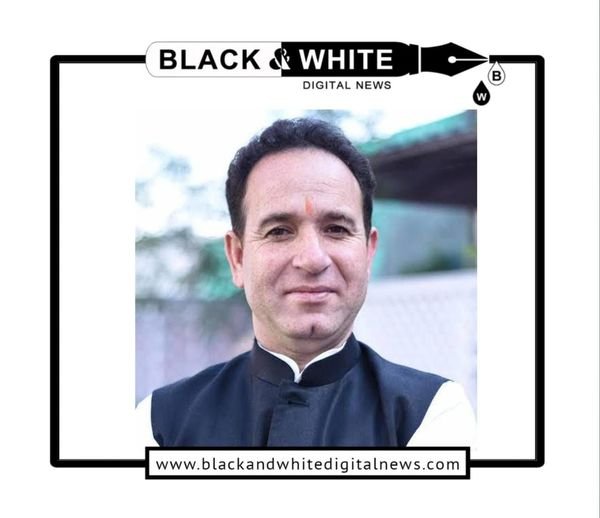Sunil Sharma Appointed Leader of the Opposition Amid Political Power Struggle Over Deputy Speaker’s Post in J&K Assembly.
||Black and White Digital News||
||November 04,2024 ||
JAMMU : In a significant development for the political landscape of Jammu and Kashmir, former minister and two-time BJP MLA Sunil Sharma has officially been elected as the Leader of the Opposition in the newly constituted Jammu and Kashmir Legislative Assembly. This elevation marks a strategic move by the BJP as it seeks to assert its influence in the Union Territory amid complex political dynamics and rising anticipation for the assembly’s first session on November 4 following the abrogation of Article 370.
Sharma, a prominent BJP figure from Padder Nagseni in Kishtwar, clinched his assembly seat with a slim margin in the assembly elections —his second victory in this challenging constituency. His recent election as the BJP legislature party leader and, consequently, the Leader of the Opposition underscores his rising stature within the party and the importance of BJP’s agenda in the region. A BJP spokesperson confirmed the appointment, expressing confidence in Sharma’s ability to champion the opposition’s role effectively. Sharma, 47, had previously served as Minister of State in the PDP-BJP coalition government from 2014 to 2018.
However, the Deputy Speaker’s role—an important position that traditionally fosters balance within the legislative assembly—remains uncertain. Contrary to circulating reports, the ruling National Conference (NC) has yet to announce the allocation of the Deputy Speaker’s post, leaving the BJP, as the principal opposition, without clarity on this matter. Although political conventions in past assemblies, including during the NC-Congress regime from 2008 to 2014 and the PDP-BJP coalition from 2015 to 2018, saw opposition members such as PDP’s Mohammad Sartaj Madni and NC’s Nazir Gurezi occupying the Deputy Speaker role, NC leaders appear hesitant to follow this precedent with the BJP.
According to high-ranking NC insiders, the party is concerned that offering the Deputy Speaker’s post to the BJP might risk sending a “wrong message” to its support base in the Kashmir Valley, where skepticism about a potential BJP-NC alliance remains a sensitive issue. With the Peoples Democratic Party (PDP) already keen to capitalize on any perceived “nexus” between NC and BJP, NC leaders worry that such a move could be exploited by rivals to erode the party’s credibility in the Valley.
In response to these concerns, NC is reportedly considering alternative options. Sources suggest that the party may instead appoint a Congress MLA or possibly accommodate one of its own leaders in the Deputy Speaker’s role. This maneuver would allow NC to avoid direct opposition with the Union government while maintaining distance from BJP, thereby averting potential political fallout in the Valley. Although initial discussions within NC briefly entertained the idea of offering the Deputy Speaker role to the BJP, as a gesture of cooperative governance, the current outlook suggests a shift away from this possibility.
The backdrop for these political maneuvers is a territory still navigating the post-Article 370 landscape, with the BJP striving to consolidate its presence and the NC working to retain influence amidst shifting loyalties. The impending assembly session will serve as a crucial stage for these parties to redefine their stances and solidify their bases. As the Leader of the Opposition, Sunil Sharma is expected to lead the BJP’s counter-narrative vigorously, advocating the party’s vision for Jammu and Kashmir’s development and playing a critical role in the upcoming session.
This tug-of-war over the Deputy Speaker’s post is emblematic of a broader realignment in Jammu and Kashmir’s political ecosystem, underscoring both the legacy of past coalitions and the challenges posed by emerging alliances. The assembly’s November 4 session promises to bring these underlying tensions to the fore, setting the tone for future political developments in the region.



